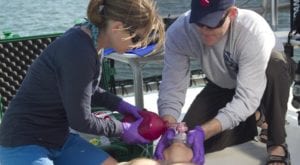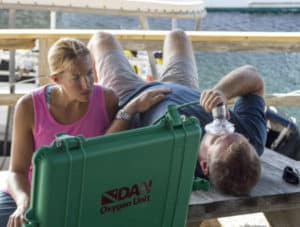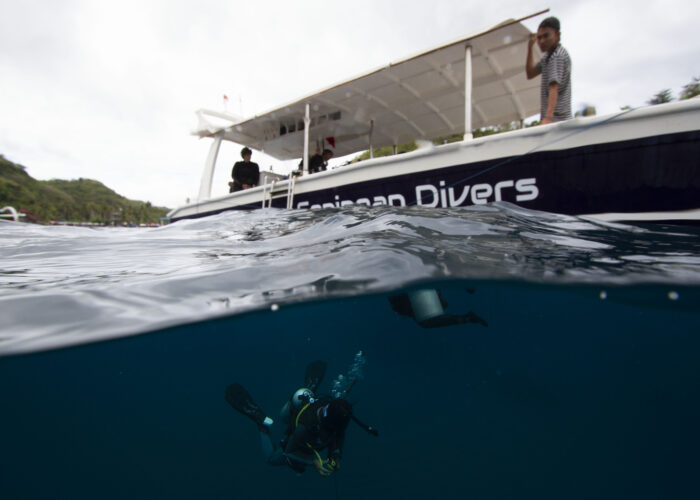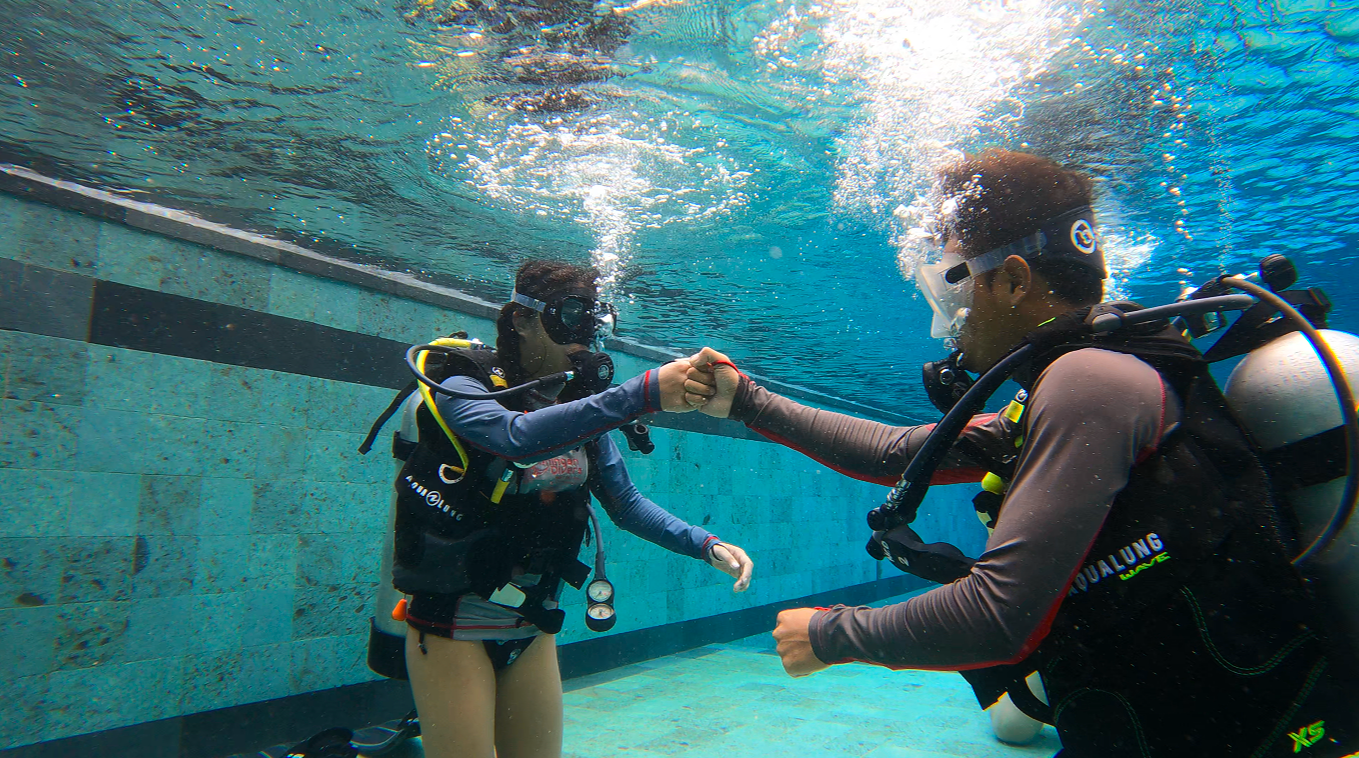Bags are packed, accommodation booked, passport in hand, the flight is boarding and
you can almost feel the salty breeze and sunshine beaming down on you.
Only a few hours until… Touch down!
All those hours you’ve spent sitting at your desk day dreaming of the crystal blue waters that surround Nusa Ceningan, exploring the secret coves on the island, manta rays cruising past on a dive, relaxing with a beer watching the sunset are now right at your finger tips.
But first I’m going to discuss a topic a lot less interesting than mantas and sunset beers, something people don’t often think about in all the excitement of planning a dive vacation… Insurance.
Nope, not the kind of Insurance where your luggage ended up in Peru or you missing your flight because you’re car broke down on the way to the airport, I’m talking about Dive Insurance.
The kind that will cover you in case anything bad were to happen during your dive.
It’s a topic I think deserves a lot more attention and is hugely overlooked, maybe this is due to the fact that majority of us are pretty spoilt when it comes to our 5* healthcare services at home and expect the same wherever we find ourselves in the world.
Now although diving is actually a relatively safe sport compared to others, it still holds its own risks which is why it’s a good idea to invest in specified Diving Insurance.
Let’s use Decompression Sickness as an example, every divers worst nightmare!
Here’s a real life scenario:
- You’ve been diving around Nusa Penida and come up from a dive, something is not right.
- You start to show symptoms of Decompression Sickness e.g. Dizziness, Blurred Vision, Joint Pains Itchy skin rash.
- Ceningan Divers activates its EAP (Emergency Action Plan), administer oxygen, monitor you and then take you to the local hospital on Nusa Lembongan after the symptoms don’t improve.
- The local hospital monitor you further, check your vitals and administer more oxygen.
- The next step is getting you to a Recompression chamber, the closest is in Bali.
- An emergency fast boat and ambulance are called and you are taken to the chamber
- You require 5-8 hours in the Hyperbaric chamber.
- The doctor admits you to 2-3 days of bed rest at the hospital following recompression to monitor your recovery.

The diver in this scenario luckily had diving insurance with DAN Europe who covered all costs however, not having Insurance would have cost him/her over $11,000 USD… yes my eyes are watering at the cost as well.
Hyperbaric Treatment alone for 8 hours cost $3,500 USD which is not an expense anyone wants to fork out on a diving vacation.
These costs are the lower end of what it may cost and will vary considerably depending on where you are and the severity of the accident.

So, what are your options?
In my opinion you don’t have to look further than DAN (Diver Alert Network) for diving insurance.
They have been a trusted name in diving accident management for over 30 years by both recreational and professional divers and offer a wide range of plans ideally suited to your diving vacation.
If you are diving frequently throughout the year, you may want to consider looking into
DAN Annual Diving Insurance.
Single and family membership with different level coverage plans are available and include Worldwide Emergency Evacuation Coverage, 24-Hours 7 days a week medical assistance and much more.
DAN Asia Pacific
http://www.danap.org/Membership_Insurance/osprices.php
DAN Europe
https://www.daneurope.org/insurance
DAN North America
https://www.diversalertnetwork.org/membership/
DAN Short Term Insurance is ideal if you only have a short dive trip planned or decided last minute you wanted to complete a course or dive.
They offer two inexpensive plans, one for 10 days coverage and the other 30 days coverage with a range of benefits from Accident treatment and Emergency Evacuation to Lost Equipment and 24/7 assistance.
DAN Short Term Insurance is available to purchase at Ceningan Divers before booking any dive package or course with immediate activation.
Like the old saying goes “It’s better to be safe than sorry” and I can’t agree more especially whilst diving.
When you factor in that Nusa Ceningan, Lembongan and Penida are fairly remote Islands with moderate to strong current and cold water, regardless of practicing conservative safe diving, we all have different bodies and adhere to the potential risks every time we enter the water.
- To prevent any kind of dive accidents, simply follow your training…
- Sticking to your personal training depths.
- Not exceeding Deco times.
- Watching your air gauge every 5 minutes.
- Always diving with a buddy.
- If you are not feeling fit to dive, DON’T.
- Making Slow, safe accents, following your dive computers.
- Wearing the correct exposure protection.
- Staying hydrated and well rested.
Hopefully you’ll never have to use your DAN Diving Insurance and the only equipment you’ll ever have to breathe from is your regulator on a dive with Ceningan Divers drifting along the North coast of Nusa Penida with Sunfish, Turtles and all the other incredible marine life


